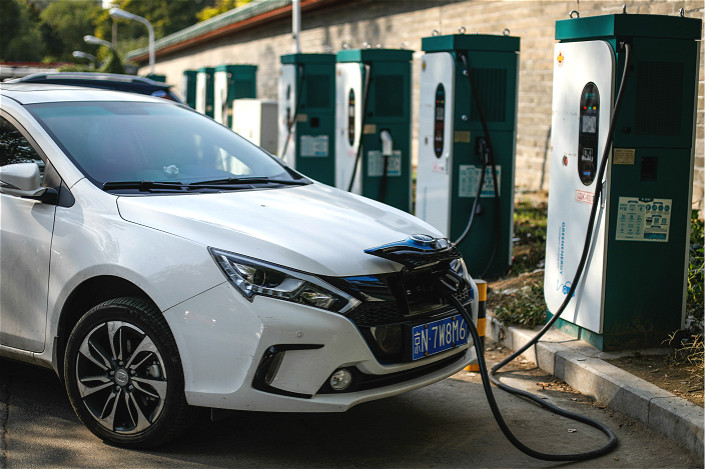Baoneng Steers Into New-Energy Vehicles

Property and finance conglomerate Baoneng Group has become the latest Chinese firm to join the country’s new-energy vehicle craze, after its expansions into the real estate and insurance industries hit roadblocks.
Baoneng has signed a14-billion-yuan ($2 billion) investment agreement with a district government in the city of Hangzhou to launch a new-energy vehicle development and production project, local-government-backed newspaper the Hangzhou Daily reported.
Baoneng owns property, finance, logistics and healthcare businesses, and just this year set up 12 automobile subsidiaries. In June, the group failed in a hostile takeover of real estate developer Vanke Co. Ltd.
In recent years, Baoneng had sought rapid growth through the sale of universal life policies through its insurance arm, Foresea Life Insurance Co. Ltd. But Foresea was banned from selling such policies in December after it was found to be using proceeds associated with short-term insurance for long-term investments.
Baoneng’s sole shareholder, Yao Zhenhua, was banned from China’s insurance industry for 10 years for forging documents and the improper use of funds.
The insurer recorded a net cash outflow of 25.58 billion yuan ($3.58 billion) at the end of the second quarter of this year, down from an inflow of 8 billion yuan a year earlier.
In an attempt to diversify its income channels, Baoneng began seeking opportunities in the policy-driven new-energy vehicle industry. Beijing has been pushing automakers to shift to electric and hybrid car production, granting subsidies and setting quotas to optimize energy consumption and reduce air pollution.
A 2015 rule allows non-automobile companies to expand into the auto sector but only through new-energy vehicle-related projects. The policy has encouraged several big names — including air-conditioning giant Gree Electric Appliances Inc., home-appliance maker Sichuan Changhong Electric Co. Ltd., and telecom developer ZTE Corp. — to enter the nascent business.
Prior to starting production, Baoneng must obtain approval from China’s National Development and Reform Commission and get each car model certified by the Ministry of Industry and Information Technology.
No public records on Baoneng’s certification application could be found, and the company hasn’t replied to Caixin’s request for updates on its approval process.
Media reports and industry players have said that Baoneng may have become a major shareholder of Shanghai-based carmaker Qoros Auto Co. Ltd. — which has obtained official new-energy automobile certification — as it announced in August that it had sold a 51% stake to an unspecified Chinese company, but the deal is pending due to regulatory approval.
A Qoros spokesperson told Caixin that he has no idea if the sale involved Baoneng, and is not willing to release information on the new shareholder.
Contact reporter Coco Feng (renkefeng@caixin.com)

- 1Cover Story: China Carves Out a Narrow Path for Offshore Asset Tokenization
- 2Drownings Shake Chinese Enthusiasm for Travel to Russia
- 3Over Half of China’s Provinces Cut Revenue Targets
- 4Li Ka-Shing’s Port Empire Hit by Forced Takeover Amid Panama Legal Dispute
- 5In Depth: China’s Mutual Fund Industry Faces Overhaul After a Banner 2025
- 1Power To The People: Pintec Serves A Booming Consumer Class
- 2Largest hotel group in Europe accepts UnionPay
- 3UnionPay mobile QuickPass debuts in Hong Kong
- 4UnionPay International launches premium catering privilege U Dining Collection
- 5UnionPay International’s U Plan has covered over 1600 stores overseas






